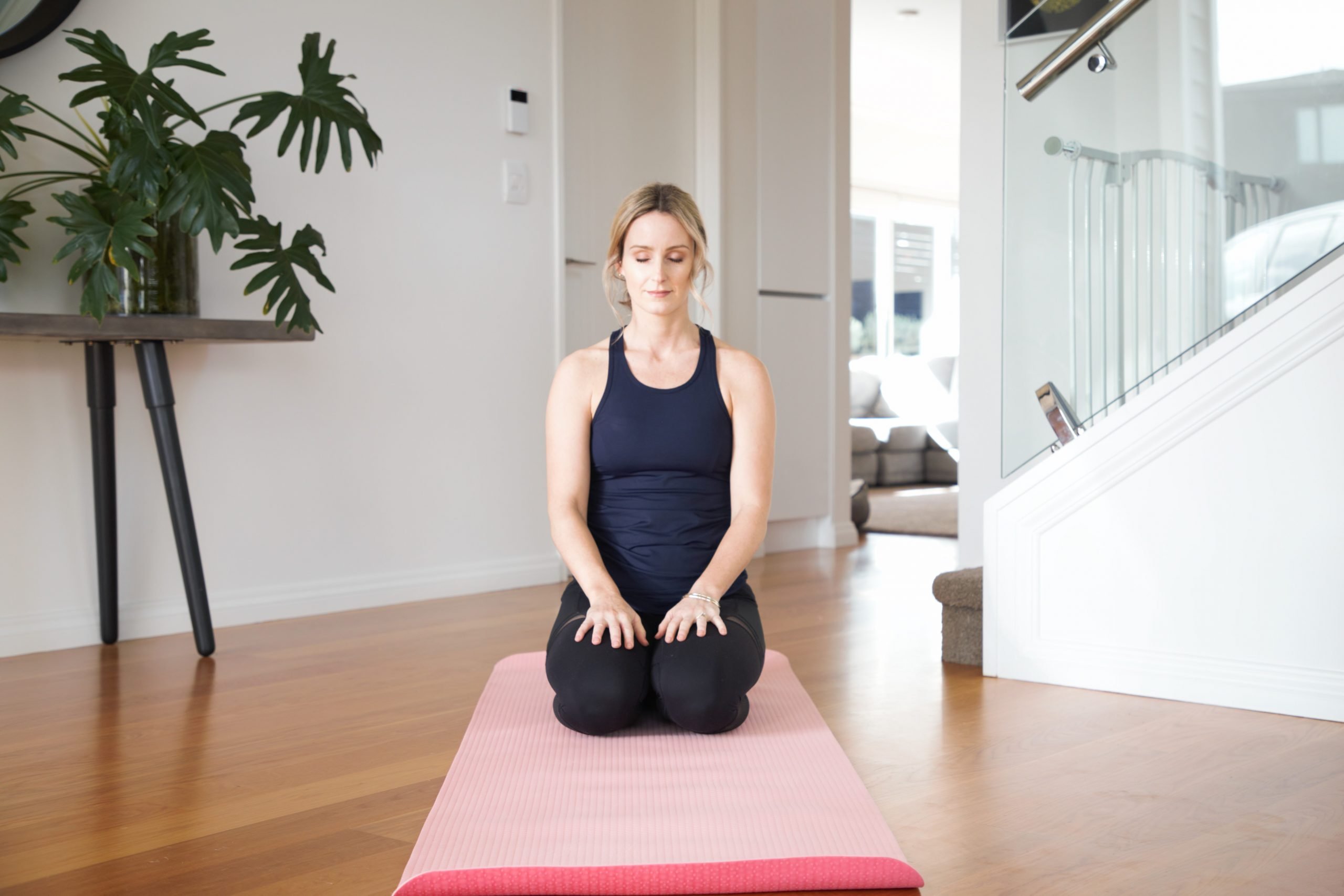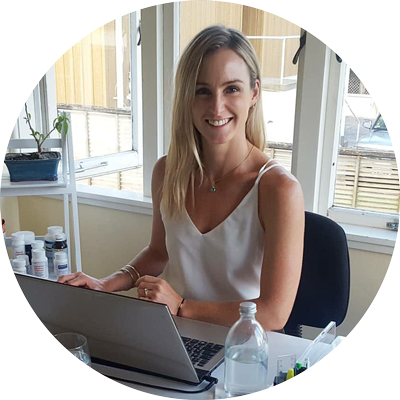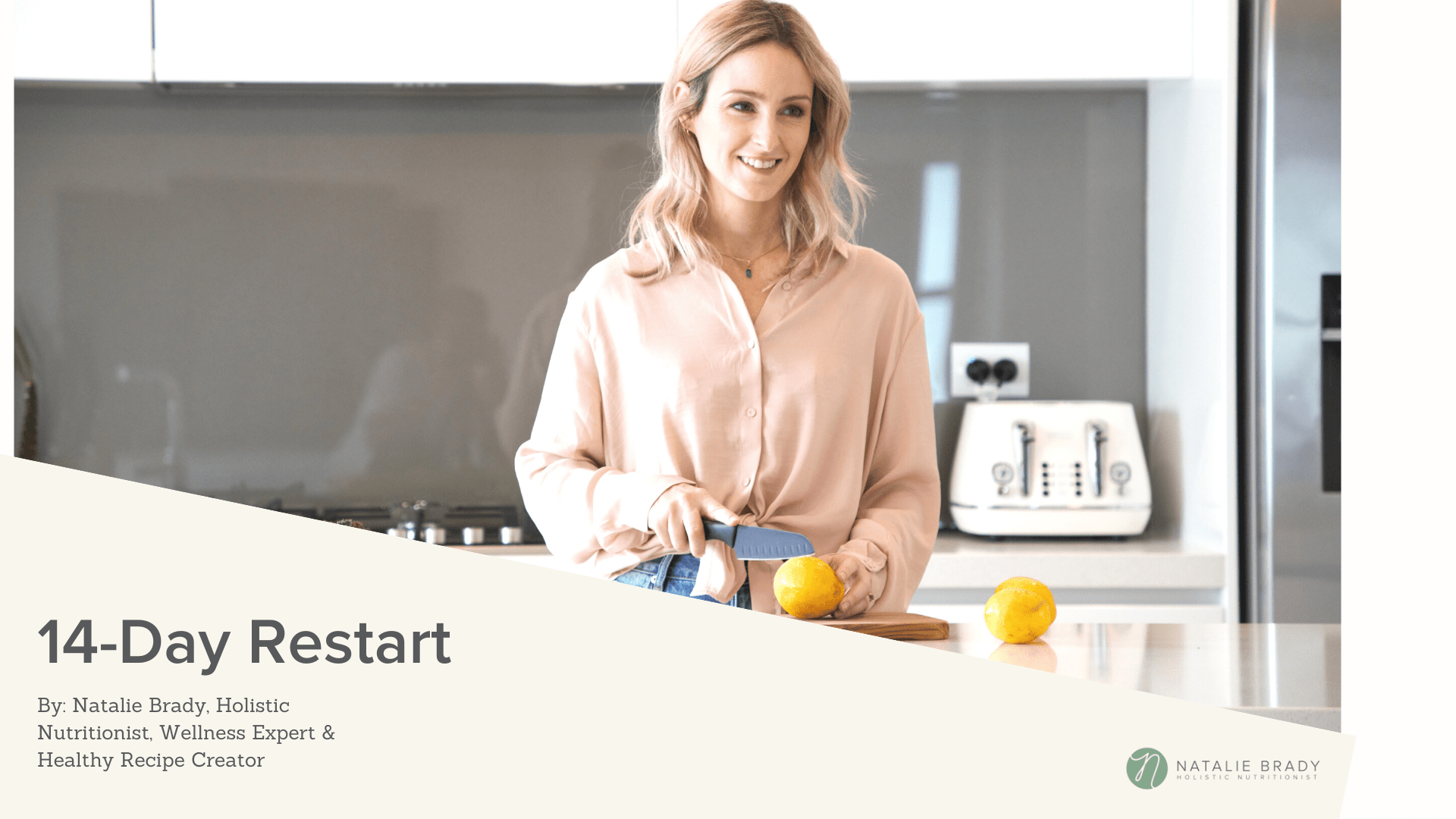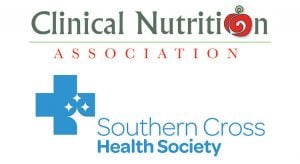How To Naturally Lower Anxiety

Anxiety has become one of the most common health conditions around the globe. Anxiety is something many of us have experienced. And with circumstances that have happend over the world recently with things like COVID-19 or natural disasters, this has only further increased people’s anxiety, along with causing an increase in more fear and worry.
Anxiety is experienced in many different ways – constant worry or overthinking, sleeplessness, intrusive thoughts, constant feelings of nervousness, panic attacks. There are many contributing factors that may lead to a person developing anxiety such as a global pandemic or any stressful circumstance, work pressure, relationships, finances, children, past trauma, personality traits such as being a perfectionist, having low self-esteem, physical conditions such as nutrient deficiencies, overactive thyroid, unhealthy lifestyle choices, addictions.
Depending on the severity of anxiety professional help may be required. And please never ever feel ashamed to ask for help! Looking after your mental health should be a priority. Stress, worry, anxiety, can wreak havoc in the body and can lead to gut health problems, hormonal imbalances, low energy, nutrient deficiencies, poor food and lifestyle choices to name a few.
Today I’m sharing with you a few ways to help reduce anxiety. You don’t need to do them all at once, simply start with one or two and try to implement them into your daily routine for a week or two and see how you feel. It’s about finding a technique that works for you.
Personally, I find regular guided meditation really helps me, I also love to put my legs up against the wall while listening to meditation. I also supplement with magnesium daily and have done for many years. Exercise is another big one for me, whether that be yoga, a walk outdoors or a weight-based training session, it always feels good to move my body and to get a boost of endorphins.
1. Breathe diaphragmatically – start off by taking 3 slow deep breaths. It may sound simple, but when you’re feeling anxious, you’re often breathing short, sharp shallow breaths which affect your nervous system and create more stress. To get you out of the fight or flight response and into the rest and digest response, breathe in for 3 counts, hold, breathe out for 3 counts. Do this 3-5 times. Make sure you breathe through your belly, letting your belly rise and fall. You can do this in your car, at your work desk, waiting at traffic lights, at the dinner table.
2. Put your legs up against the wall for 10-15 minutes daily – this pose has so many incredible health benefits such as:
- Calms your nervous system (allowing you to enter your “rest and digest” parasympathetic nervous system response)
- Helps with poor digestion and circulation
- Stretches the hamstrings and relieves sore and tired legs
- Relieves lower back pain
- Helps to lower cortisol levels and restore the adrenal glands
- Relieves stagnant energy from sitting down all day as it gets the blood flowing in a different direction
I like to do this pose in the evenings before going to bed. It’s a great pose to do when you get home from work, to disconnect from the day, calm the mind and body and recenter your mind and body. When lying like this it’s important to pay attention to your breath, breathing slowly and deeply into your belly (letting your belly rise and fall), this is the best way to relax your nervous system! Listening to a guided mediation while doing this can be really calming.
3) Meditate. To get the benefits of meditation it’s best to practice it regularly. You could start off by doing it for just 1 minute for a couple of days, and then building it up by 1 minute each time until you’re up to 15 or 20 minutes. The ultimate goal of mediation is about so much than just doing your 15 minutes a day, it’s about changing your thinking and behaviours to become more mindful of everything that you do, which is why it is so great for anxiety. You could do it by sitting in silence and focusing on your breath, or you could try out a meditation app, such as Insight Timer, Calm, and Headspace.
4) Set some social media boundaries. The number one addiction in the world right now is the screen. Social media is wreaking havoc on people’s mental health. It’s so important to set boundaries for your mental health. It’s not about eliminating it, but it’s important to use it in moderation. Experiment with setting a 30 minute timer on your social media apps for the day, or pick two times of the day that you’ll sit down and check your social accounts for 15-20 minutes. You could also try putting your phone away and on flight mode by 8pm or 8.30pm each night. Also, do not check your social media first thing upon waking, get up, be present and in the moment, instead, take some slow deep breaths, or meditate, and/or move your body. You do not need to fill your mind with what others are doing, this can lead to comparison or trigger an emotion (anger, sadness, frustration, jealousy) which could ruin your mood for the day. Instead, start your day with intention and calmness.
5) Exercise regularly. It’s important to find an exercise that you enjoy, this way you are more inclined to stick with it. Not only is it good for our physical health, but it’s very important for our mental health. It helps to spend more of that nervous energy caused by adrenalin surges. Regular exercise also does wonders for your sleep if you’re struggling with insomnia. It also gives you a boost of feel-good endorphins. Yoga and tai chi are specifically great for anxiety and relaxing your nervous system. They can help to quiet the busy mind.
6) Reduce caffeine intake. And that’s all caffeine, from coffee, tea, soft drinks, chocolate. Caffeine can exacerbate the physical symptoms of anxiety, as caffeine increases stress hormones such as adrenaline and cortisol contributing to feeling jittery, with an increase in heart rate, blood pressure and can cause a surge in blood sugar levels.
7) Fine tune your diet. Nutrition is the foundation of our health and certain nutrients are essential for the maintenance of neurotransmitters and neuronal structures of the nervous system. Omega-3 fatty acids improve symptoms of anxiety and depression through their anti-inflammatory properties, as well as involvement in the structure and function of neuronal membranes, receptors and signal transmission. Omega-3 rich foods are salmon, sardines, egg yolk. Small amounts of omega-3 can be found in flaxseeds, walnuts, chia seeds. B vitamins are also important for the nervous system. B vitamin rich foods are meat, poultry, eggs, seafood, legumes, banana, leafy greens. Magnesium is another important nutrient to help reduce anxiety. Read the next slide to find out more about this magical mineral.
8) Supplement with magnesium. Magnesium is my favourite mineral which has many health benefits. Research has shown that magnesium may be deficient in people who suffer from anxiety. Magnesium balances out the stress response. The effects of stress induce a shift of magnesium to the extracellular space, increasing urinary excretion and depleting magnesium body stores. Magnesium deficiency adversely affects excitatory neurotransmitters such as serotonin and acetylcholine and is associated with stress. Magnesium is also important to help improve sleep, muscle health and reduce muscle cramps, support energy production, support blood sugar balance. Magnesium deficiency is not uncommon, as our soil is quite low in magnesium. Foods highest in magnesium are organic leafy greens, nuts, pumpkin seeds, sunflower seeds, beans and legumes, raw cacao powder. When it comes to supplements, the best and most bioavailable form of magnesium is magnesium bisglycinate. You want to take around 300-400mg daily in the evening or before bed.
9) Other things to consider – It’s about finding something that works for you and making sure that becomes a regular part of your lifestyle. If the above suggestions don’t work for you, some other things you could try out are journaling, working with a counsellor and/or energy healer, gratitude writing, saying no more often, making sure you’re getting adequate rest. Developing a positive self-talk strategy is also important. Learning to identify negative thoughts and replace them with positive ones helps to reframe the situation and change habits. Balancing blood sugar levels is also important because low blood sugar can look a lot like anxiety. Eating meals that contain a good protein source, healthy fat source, and fibre is important. There are also some powerful herbs that can help, such as passionflower, lemon balm, chamomile, lavender, ashwagandha, however it’s best to work alongside a naturopath or herbalist to ensure you take the right dose for you that’s going to be therapeutic, and to make sure there are no interactions with any medications you may be taking. You also want to reduce sugar intake and support gut health. Over 90% of serotonin is made within the gut, serotonin is our feel-good hormone, so working on gut health is vital to support mental health.

Hi I’m Natalie, a Registered Clinical Nutritionist, health influencer, blog writer & recipe creator. My own health complications prompted me to make positive diet & lifestyle changes, revitalize my health leading to a career change from the corporate world to nutritional medicine. I believe in a wholefoods approach to good health, focusing on simple strategies for modern, busy people.
Let's connect @nataliebradynutrition
The information on this website is not intended to replace the advice of your GP, a one on one relationship with a qualified health care professional and is not intended as medical advice. It is not intended for self-diagnosis, treat, cure, or prevent any disease. I encourage you to make your own health care decisions based upon research and in partnership with a qualified healthcare professional. The entire content of this website is based on the opinions of Natalie Brady, a qualified Holistic Nutritionist, unless otherwise noted. Click here for term and conditions of services.
Copyright © Natalie Brady Nutrition 2022 | Natalie Brady Nutrition Listed in Auckland's Top Nutritionists | Website by Fuel Media



